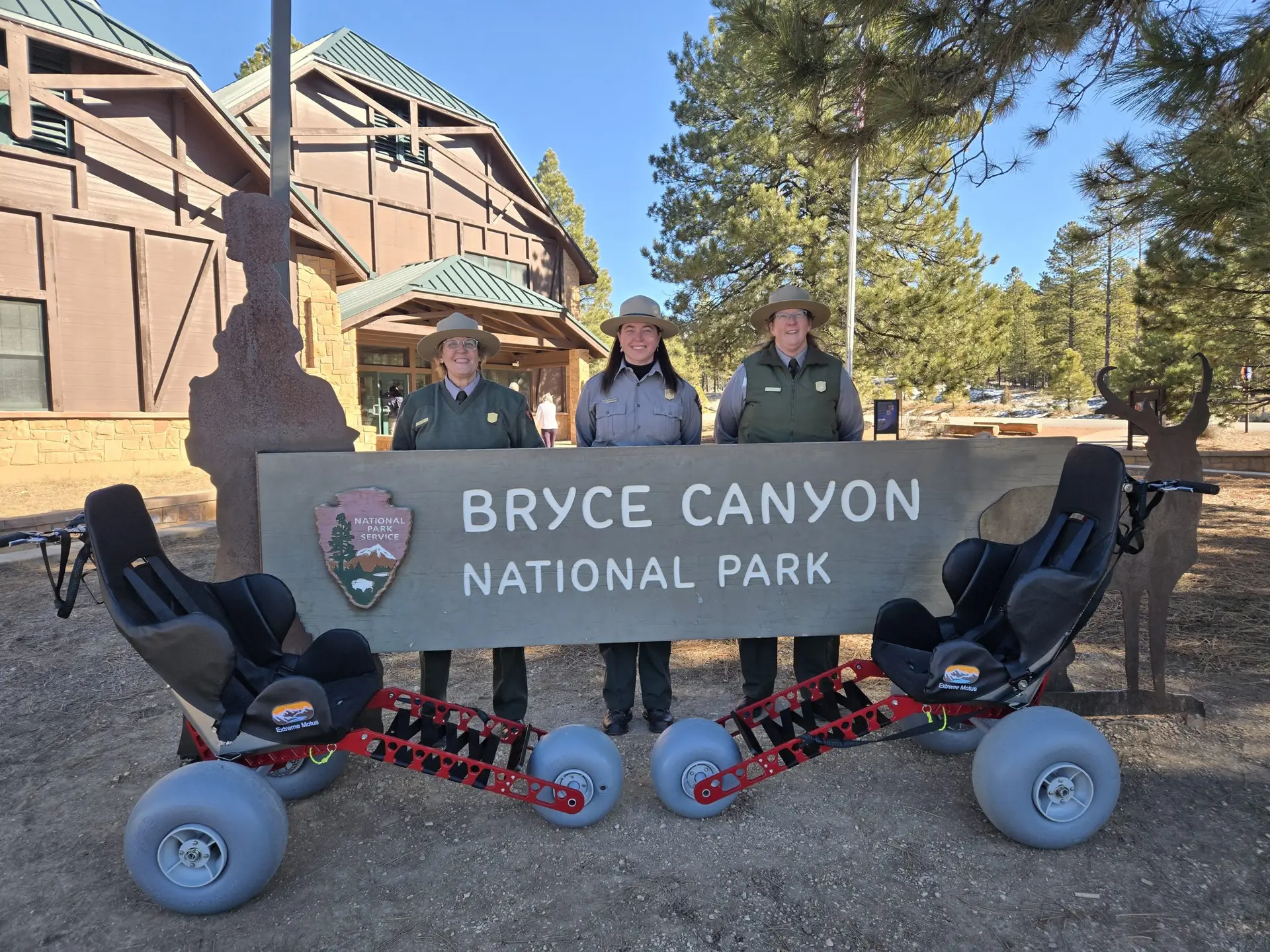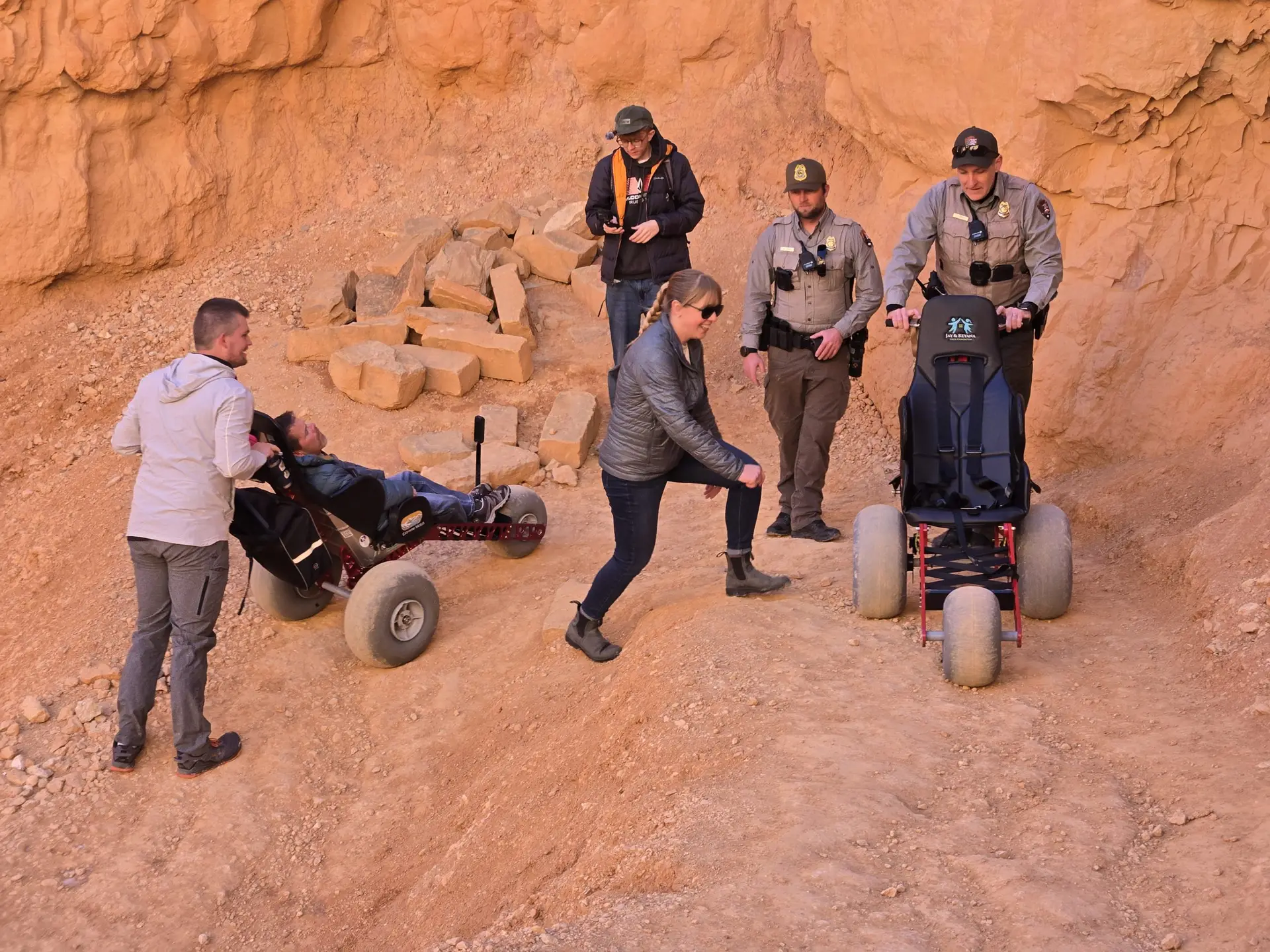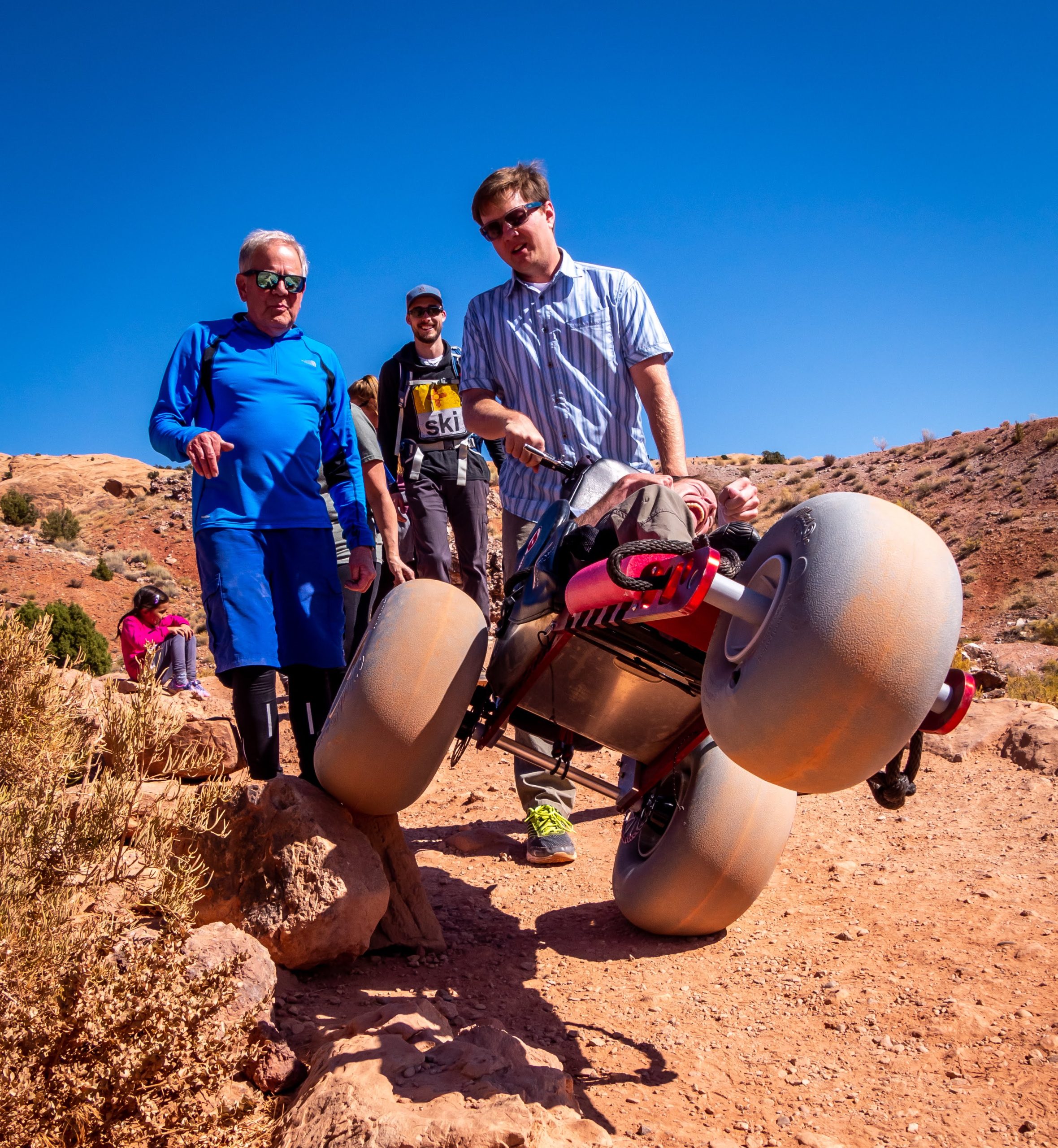7 Powerful Facts About Huntington’s Disease You Must Know
What is Huntington’s Disease?
Huntington’s Disease is a hereditary neurological condition that progressively impacts movement, cognition, and mental health. Understanding its causes, effects, and potential ways to improve quality of life, including outdoor activities, can provide essential support to individuals and families. Here are 7 powerful facts about Huntington’s Disease and how outdoor experiences can help.
1. What Causes Huntington’s Disease?
Huntington’s Disease (HD) is caused by a genetic mutation in the HTT gene, which leads to the production of a faulty protein called huntingtin. This protein damages nerve cells in the brain, causing progressive deterioration in movement, cognition, and emotional regulation.
- Genetic Inheritance: HD is inherited in an autosomal dominant pattern, meaning a child has a 50% chance of inheriting the gene if one parent is affected.
2. How Many People Are Affected by HD?
Huntington’s Disease is a rare condition, affecting approximately 1 in 10,000 people in the United States. Globally, HD impacts around 5–7 per 100,000 individuals, with symptoms typically appearing between ages 30 and 50.
3. What Are the Treatments for Huntington’s Disease?
While there is no cure for HD, treatments focus on managing symptoms and improving quality of life:
- Medications:
- Tetrabenazine (Xenazine): Helps manage involuntary movements (chorea).
- Antidepressants and Antipsychotics: Treat mood swings, depression, and irritability.
- Therapies:
- Physical therapy to improve mobility and balance.
- Speech therapy for swallowing and communication challenges.
- Cognitive therapy to manage memory and attention issues.
- Lifestyle Modifications: Regular exercise, a healthy diet, and stress management techniques can help slow progression.
4. How Does Huntington’s Disease Affect Family Members?
Huntington’s Disease profoundly impacts families as they support their loved ones:
- Emotional Strain: Families often face grief, anxiety, and stress as they watch the disease progress.
- Caregiving Challenges: Providing physical and emotional support can be physically exhausting.
- Financial Pressure: The costs of long-term care, therapies, and mobility aids can be significant.
- Genetic Concerns: Family members may grapple with the risk of inheriting the disease themselves.
5. Can Huntington’s Disease Require the Use of a Wheelchair?
Yes, as HD progresses, individuals may experience severe mobility challenges, including loss of balance, muscle control, and coordination. Wheelchairs become essential for:
- Preventing Falls: Reducing the risk of injury.
- Supporting Independence: Enabling mobility during advanced stages.
- Improving Quality of Life: Offering comfort and accessibility.
6. Why Is Spending Time Outdoors Important?
For individuals with HD, outdoor activities provide essential mental and physical benefits:
- Mental Health Boost: Nature helps reduce anxiety, depression, and emotional distress.
- Physical Activity: Gentle movement in an outdoor setting can improve muscle tone and circulation.
- Social Connection: Parks and outdoor spaces encourage interaction with loved ones and community members.
- Enhanced Mood: Sunlight exposure boosts serotonin levels, promoting happiness.
- Cognitive Stimulation: The sensory experience of nature supports mental engagement.
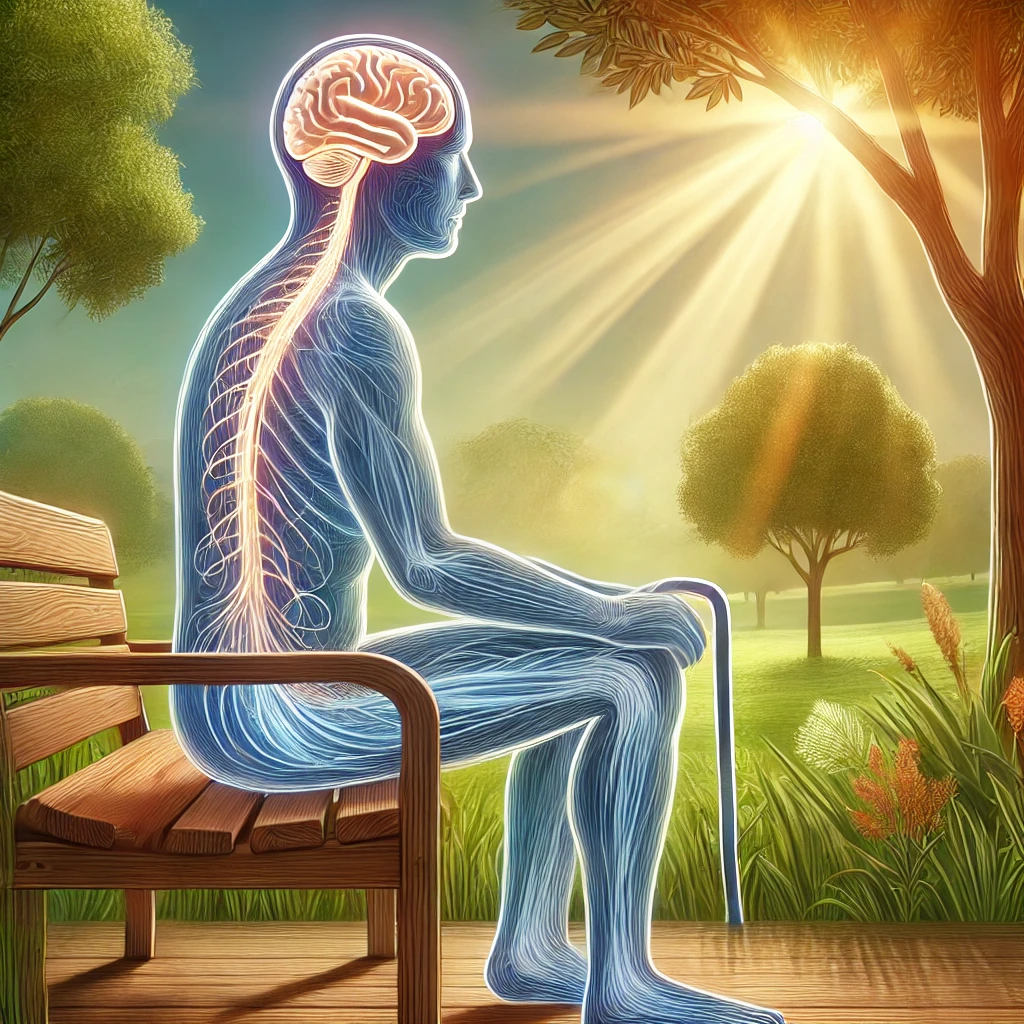
7. How Can an All-Terrain Wheelchair Help?
An all-terrain wheelchair empowers individuals with HD to safely and comfortably enjoy the outdoors:
- Navigates Any Terrain: Designed for grass, sand, gravel, and uneven trails, ensuring accessibility in diverse settings.
- Provides Comfort and Stability: Ergonomic seating and shock absorption reduce discomfort and enhance safety.
- Promotes Independence: Enables users to explore nature on their own terms.
- Encourages Family Inclusion: Facilitates participation in outings and group activities.
- Boosts Confidence: Reduces mobility barriers, allowing users to reclaim their connection with nature.
What is the Extreme Motus All-Terrain Wheelchair?
The Extreme Motus All-Terrain Wheelchair is a highly versatile mobility aid that provides freedom, stability, and accessibility for individuals with Huntington’s Disease (HD). HD is a progressive neurological condition that often leads to challenges with coordination, balance, and mobility. This wheelchair helps users navigate these challenges and enjoy outdoor activities, promoting physical, emotional, and social well-being.
How the Extreme Motus Wheelchair Benefits People with Huntington’s Disease
1. Ensures Stability and Safety
- Shock-Absorbing Suspension: Minimizes jolts and vibrations on uneven terrain, reducing the risk of discomfort or injury for individuals with involuntary movements or muscle rigidity.
- Secure Design: Offers a stable, safe platform to help users navigate outdoor environments confidently, even with compromised balance or coordination.
2. Reduces Physical Strain
- Energy Conservation: Fatigue is a common symptom of Huntington’s Disease, and the wheelchair helps users conserve energy for other activities by eliminating the physical effort of walking or standing.
- Ergonomic Seating: Provides proper posture support and reduces strain on the back, neck, and limbs, ensuring a comfortable experience during extended use.
3. Expands Outdoor Access
- All-Terrain Capability: Built to navigate sand, gravel, dirt trails, grass, and other challenging surfaces, the wheelchair opens up a world of outdoor exploration.
- Durable Construction: Withstands the demands of rugged terrain, offering reliability and peace of mind.
4. Enhances Mental and Physical Well-Being
- Promotes Outdoor Activities: Spending time in nature reduces stress, anxiety, and depression, fostering relaxation and emotional balance.
- Encourages Gentle Activity: Access to outdoor spaces supports light physical activity, improving circulation and reducing stiffness.
- Boosts Vitamin D Levels: Sunlight exposure strengthens bones and supports immune function, which is especially beneficial for individuals managing chronic conditions.
5. Facilitates Social Engagement
- Supports Group Participation: Enables users to join family outings, community events, and recreational activities, enhancing social interaction and reducing feelings of isolation.
- Strengthens Relationships: Shared outdoor experiences foster connections with loved ones and create meaningful memories.
6. Empowers Independence
- Easy Maneuverability: Designed for effortless navigation, the wheelchair allows users to explore outdoor spaces independently or with minimal assistance.
- Builds Confidence: Overcoming mobility barriers fosters a sense of autonomy and encourages users to embrace new environments and activities.
Why the Extreme Motus Wheelchair Is Ideal for Huntington’s Disease
The Extreme Motus wheelchair is tailored to the unique needs of individuals with Huntington’s Disease. Its stability, comfort, and adaptability provide a reliable and empowering way to navigate outdoor spaces safely and confidently, enabling users to enjoy life’s adventures without limitations.
Conclusion: Thrive with Huntington’s Disease Outdoors
Living with Huntington’s Disease presents significant challenges, but spending time outdoors can provide therapeutic benefits for individuals and their families. With the help of an all-terrain wheelchair, mobility barriers can be overcome, opening opportunities for exploration, relaxation, and connection.
Ready to embrace the outdoors? Explore our range of all-terrain wheelchairs designed to empower individuals with Huntington’s Disease and other mobility challenges, helping them reconnect with the beauty of nature!
Every year, more families discover the freedom these chairs create—this Black Friday, demand is already building fast. By joining the early-access list, you secure your chance to order before the sale goes public on November 28, 2025.
Since 2019, Sam and Ryan have been demonstrating that nature is wheelchair accessible with the Extreme Motus All Terrain Wheelchair. From National Parks to Skateparks, their adventures prove that a manual off-road wheelchair can offer laughter and joy while navigating diverse terrains.
Join us as we continue to share these inspiring journeys.
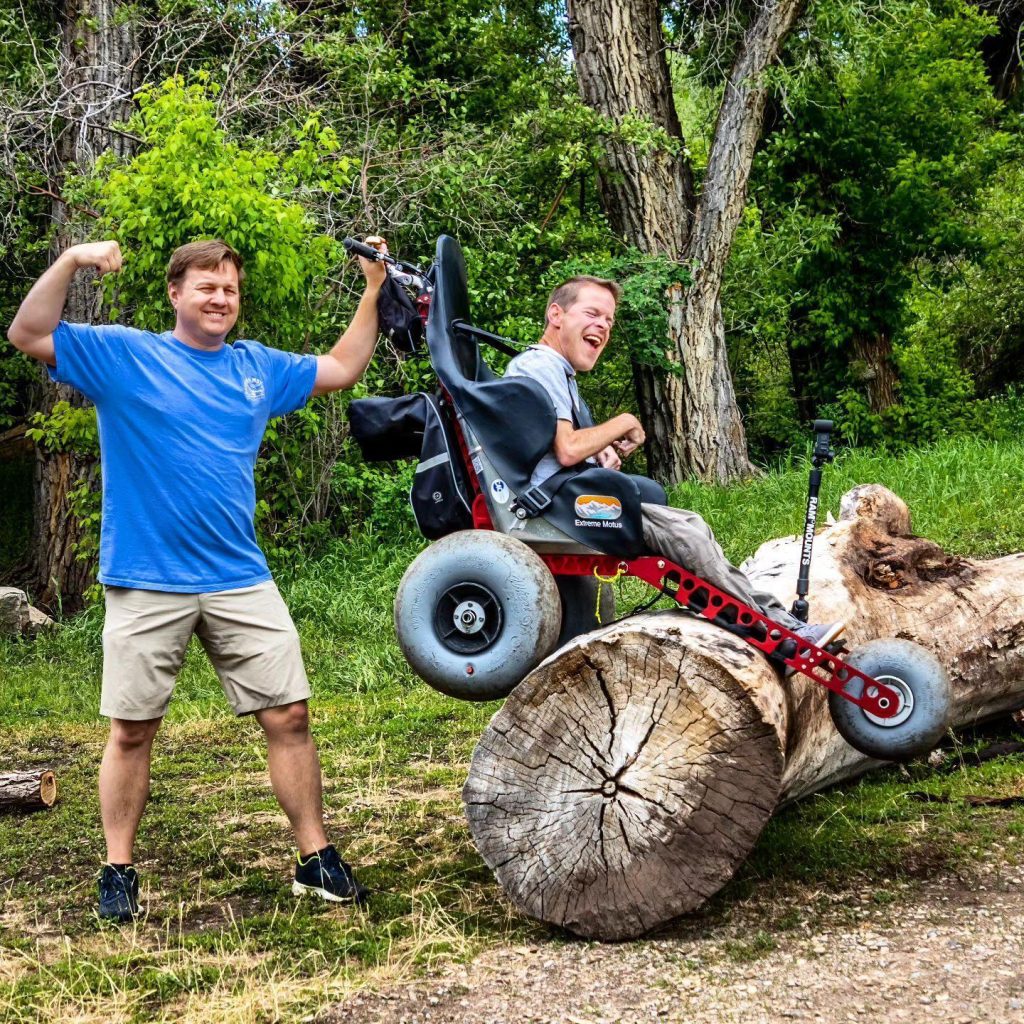
Light, comfortable, and compact, the Extreme Motus glides over sand, rocks, grass, gravel, and even floats in water.
It’s more than a outdoor wheelchair; it’s your ticket to freedom. Embrace the outdoors with confidence, knowing our off-road wheelchair is engineered for durability and ease of use.
Be the first to hear about new gear, upcoming adventures, and exclusive offers. As a welcome gift, enjoy $10 off your first Motus T-Shirt when you subscribe.
By subscribing you agree to receive marketing communications from Extreme Motus, including product updates, promotions, and special offers. I understand I can unsubscribe at any time.

